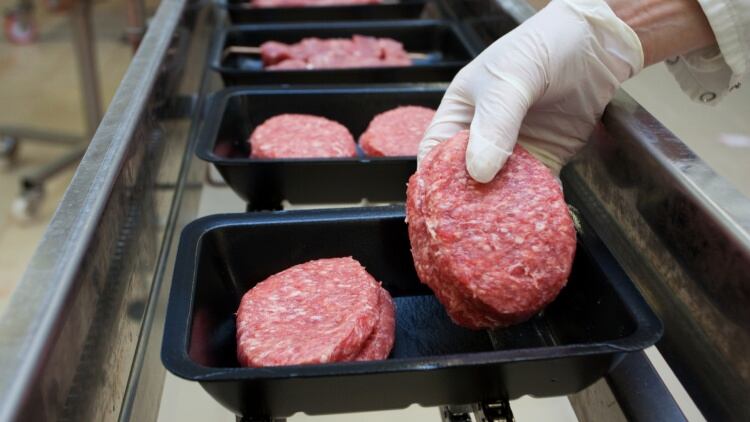The University of Oxford’s Livestock Environment And People (LEAP) project found that vegan diets result in under 30% of the carbon emissions caused by high meat diets.
Led by Professor Peter Scarborough, the project estimated the carbon dioxide in kilograms emitted during the production of five different types of diet. Each diet was based on 2,000 calories worth of food, enough for one person across a single day.
The five diets analysed were high meat (100g of meat per day), low meat (less than 50g of meat per day), pescatarian, vegetarian and vegan. The research included 55,000 people, who were put into the five different diet categories.
Per day, the high meat diet led to 10.24kg in CO2 emissions, with the low meat diet just over half of that 5.37kg. The pescatarian diet came in at 4.74kg, the vegetarian at 4.16kg and the vegan at 2.47kg.
The project also broke down the amount of land and water required in the production of each diet, with high meat diet using up more resources in each example.
Need for sustainability
Joanna Trewern, head of policy (consumption) at WWF, told Food Manufacture that it was the responsibility of the Government and food businesses to improve sustainability within the industry.
“Increasing the availability of plant-rich foods, ensuring they are affordable and accessible in supermarkets, restaurants and canteens in an essential step,” she said.
“At the same time, food businesses must focus development and innovation on delivering healthy, affordable, tasty and desirable plant rich meals at scale.
“Business and government action to drive a shift towards plant rich diets must be matched by support for an accelerated transition to nature friendly farming, bolstering the resilience of our food system and helping to save our wild isles.”
The Good Food Institute (GFI) Europe echoed this sentiment, calling for investment in “plant-based foods, cultivated meat and fermentation”.
"Yet again, scientists have laid out the urgent need to move away from conventional animal products,” added Carlotte Lucas, senior corporate engagement manager at GFI Europe.
“But with most people’s day-to-day food choices based on what tastes good, what’s convenient, and what’s affordable – not what’s good for the planet – we need to make their favourite foods in a more sustainable way rather than expecting them to change their diets.”
BMPA questions results
Meanwhile, the British Meat Processors Association (BMPA) has questioned LEAP’s findings, stating that it would be consulting with independent scientific advisors who will conduct a review of the project.
“We know that all human activity and consumption should eventually be scrutinised and measured so consumers can get an accurate picture of their ‘environmental balance sheet’,” said a BMPA spokesperson.
“But that measure must be accurate and take into account both the negatives and the positives, for example methane emissions vs carbon sequestration in grass-fed production systems like the UK’s.”
Read more about the BMPA perspective on reducing carbon emissions in this interview with Food Manufacture.





